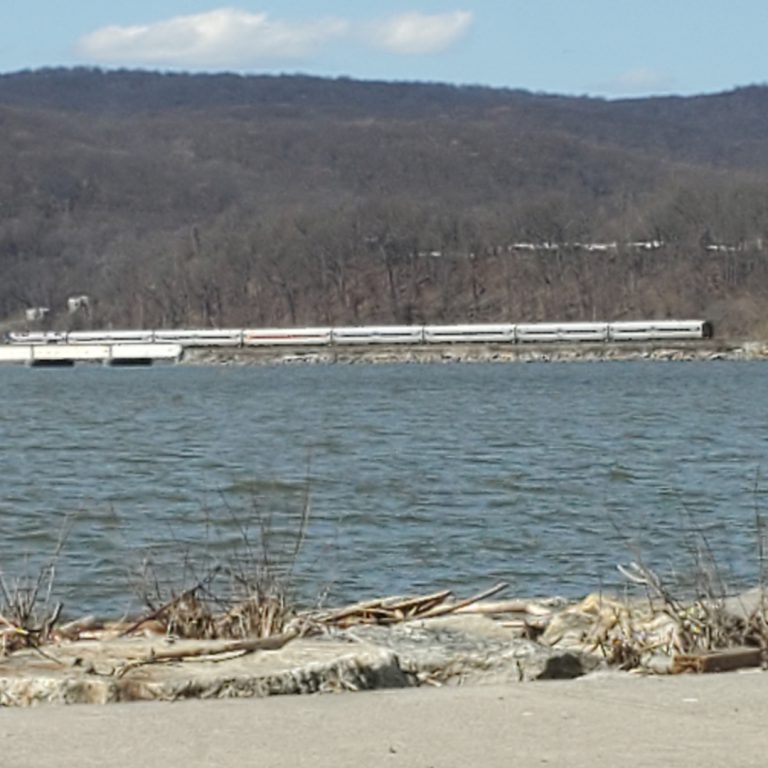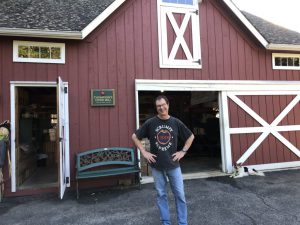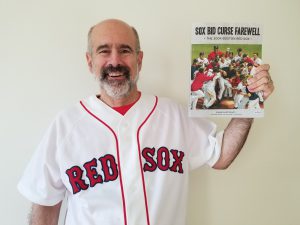Damian Williams, the United States Attorney for the Southern District of New York, and Christie M. Curtis, the Acting Assistant Director in Charge of the New York Field Office of the Federal Bureau of Investigation (“FBI”), announced today that U.S. COMPOUNDING, INC. (“USC”), a subsidiary of DMK Pharmaceuticals Corporation, pled guilty to multiple fraud offenses before U.S. District Judge Arun Subramanian, and a former USC executive, SAM GLOVER, was charged in an Indictment with conspiring to violate the Food, Drug, and Cosmetic Act (“FDCA”). GLOVER was arrested this morning and is expected to be presented today before a U.S. Magistrate Judge in the Eastern District of Arkansas.
U.S. Attorney Damian Williams said: “Distributing prescription drugs with sham prescriptions is wrong and illegal. The corporate resolution entered into today, and the indictment of Sam Glover, an executive who oversaw and allegedly perpetuated that scheme, reflects this Office’s commitment to holding accountable those who seek to violate laws designed to ensure that the drugs distributed across the United States are safe, necessary, and legal.”
FBI Acting Assistant Director in Charge Christie M. Curtis said: “U.S. Compounding, Inc. and its former executive, Sam Glover, allegedly committed various frauds and violated the Food Drug and Cosmetic Act by falsifying prescription orders. Despite scrutiny by members of the company who suspected the orders were unverified, the company’s leadership continued to allow the requests and collect profits as a result.
This investigation is part of the FBI’s larger effort to ensure that both individuals and organizations who devise complex fraud schemes are prevented from furthering their illegitimate arrangements and making money off mistruths.”
According to admissions and court documents, as well as the allegations in the Indictment:[1]
Beginning in approximately 2015, while USC was still a privately-held corporation, a USC sales representative (“Sales Rep 1”) entered into an illegal arrangement with a veterinarian (the “Veterinarian”), wherein Sales Rep 1 would use the Veterinarian’s state veterinary licenses to generate false prescriptions in order to justify shipping prescription drugs directly to consumers, including to consumers in the Southern District of New York, in violation of the FDCA.
Those consumers otherwise lacked bona fide prescriptions for those drugs. The Veterinarian was promised a 10% commission of all such sales generated using his credentials, even though Sales Rep 1 and his supervisor, GLOVER, the Vice President of Sales at USC, knew that the prescriptions issued in the Veterinarian’s name were a sham.
GLOVER, Sales Rep 1, and the sales team working under them generated approximately $1 million in sales annually because of the false prescription scheme, which comprised approximately one-third of Sales Rep 1’s total sales of USC drugs.
On or about March 28, 2016, USC was acquired by Adamis Pharmaceuticals Corporation (“Adamis”), a publicly traded company that has since changed its name to DMK Pharmaceuticals Corporation (“DMK”). USC retained its essential functions, operating as a wholly owned subsidiary of Adamis, and much of its staff remained employed, including GLOVER.
Following the acquisition, an executive at Adamis (the “Adamis Executive”) was made aware of the scheme and the Veterinarian’s role in it. GLOVER, in conjunction with the Adamis Executive and Sales Rep 1, continued the false prescription scheme and attempted to enter into a sham consulting agreement with the Veterinarian that purported to pay the Veterinarian an hourly rate for consultations. In actuality, the consulting agreement was a means to cover up the commission payments the Veterinarian was receiving as part of the scheme. GLOVER and others intended to claim the Veterinarian was a USC consultant if the commission payments to the Veterinarian were ever questioned.
In or about December 2019, the head of the USC pharmacy responsible for fulfilling prescription drug orders (“Pharmacist-1”) resigned due to USC’s failure to halt the practice of fulfilling drug orders submitted by USC’s sales representatives based on unverified prescriptions. Pharmacist-1’s replacement (“Pharmacist-2”) refused to fulfill any further orders for prescription drugs predicated on unverified prescriptions submitted by USC’s sales representatives. Pharmacist-2 raised concerns regarding USC’s prescription practices with GLOVER and the Adamis Executive.
Pharmacist-2’s concerns were initially dismissed, but they ultimately convinced Adamis to implement a new veterinary software platform that was intended to eliminate the involvement of USC’s sales representatives in the creation or submission of prescriptions in connection with drug orders.
Nonetheless, GLOVER, the Adamis Executive, and Sales Rep 1 allowed sales representatives to submit false prescriptions through the new software, circumventing the control that Pharmacist-2 had insisted on implementing. Consequently, in or about September 2020, Pharmacist-2 and two other pharmacists employed at USC resigned. A fourth pharmacist employed at USC resigned the following week. USC sales representatives continued to falsely indicate through the new software that drug orders were accompanied by valid prescriptions when they were not.
In or about July 2020, in response to increased perceived scrutiny of USC’s operations, USC sales representatives ceased submitting false prescriptions in the name of the Veterinarian. Instead, USC sales representatives falsely classified direct-to-consumer sales of prescription drugs as sales of office stock to the Veterinarian, on the pretext that the Veterinarian was prescribing these drugs to USC’s customers. According to USC’s internal sales data, sales of a particular prescription drug to the Veterinarian’s practice increased proportionally as direct-to-consumer sales of that drug declined.
In or about April 2021, the Arkansas State Board of Pharmacy issued an Order and Notice of Hearing directed to the pharmacist who replaced Pharmacist-2. Prior to any hearing, USC entered into a consent order wherein USC agreed to cease all operations in Arkansas, and USC agreed to relinquish its Arkansas State licenses as a pharmacy and wholesale distributor.
USC also entered into a resolution in which they made the following factual admissions:
USC “failed to ensure prescribing veterinarians were licensed in the state into which product was ordered and/or shipped”; USC “allowed for issuance of veterinary legend products directly to consumers without receipt of a legal prescription”; USC “provided remuneration directly to a veterinarian in connection with a veterinary prescription”; USC “provided veterinary prescriptions drugs to animal owners without the authorization of a licensed veterinarian and a prescription”; and USC “filled veterinary prescriptions for patients that did not have a valid practitioner-patient relationship.”
The U.S. Attorney’s Office for the Southern District of New York reached its resolution with USC based on a number of factors, including the nature, seriousness, and pervasiveness of the offense conduct.
The U.S. Attorney’s Office also considered USC and its parent company’s efforts to cooperate with the federal criminal investigation. After learning of the federal criminal investigation in May 2021, Adamis, through its Audit Committee, cooperated in the investigation, which included making presentations to, and addressing questions posed by, the U.S. Attorney’s Office after conducting an internal investigation.
Moreover, since learning of the investigation, Adamis, on behalf of USC, made remedial efforts, including ceasing all USC’s operations; terminating all employees and severing its relationships with all individuals involved in the criminal conduct, including senior personnel; and engaging a third party to conduct a cross-company enterprise risk assessment evaluating governance, product services, internal audit, risk management, compliance, and operations and implementing and effectuating the resulting recommendations.
Pursuant to the plea agreement, USC agreed that it is subject to an approximately $4.2 million forfeiture payment and a criminal fine of up to $16.9 million.
* * *
GLOVER, 45, of Arkansas, is charged with one count of conspiring to violate the FDCA, which carries a maximum sentence of five years in prison.
The maximum potential sentences in this case are prescribed by Congress and are provided here for informational purposes only, as any sentencing of the defendant will be determined by the judge.
Mr. Williams praised the outstanding investigative work of the FBI. Mr. Williams also thanked the Food and Drug Administration and the Customs and Border Protection for their support of this investigation.
This case is being handled by the Office’s Illicit Finance and Money Laundering Unit. Assistant U.S. Attorneys Sarah Mortazavi and David Felton are in charge of the prosecution.
The charges contained in the Indictment are merely accusations and the defendant is presumed innocent unless and until proven guilty.














